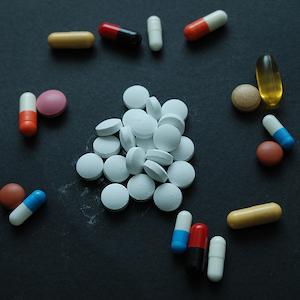Most people agree that drug prices in America are way too high. The disagreement centers on the cause and what to do about it, if anything.
The Trump Administration has its own idea. HHS Secretary Alex Azar has been in the media promoting a new policy in which television ads for drugs would be required to display the list price. The policy has wide bipartisan support, but predictably, Big Pharma isn't too happy about it.
The proposed policy is a step in the right direction. It is widely believed that one of the main causes of the high price of healthcare is the lack of transparency. Nobody would ever purchase a car without knowing how much they were spending, but we routinely do precisely that for healthcare. Biomedical companies can jack up prices because we tend to purchase things without ever asking to see the tag.
Another idea that has been proposed by others is to ban direct-to-consumer pharmaceutical advertising (DTCPA) altogether. This policy is worth a closer look.
Should Pharmaceutical Ads Be Banned?
There are only two countries in the world that allow pharmaceutical companies to promote their drugs in ads to the public that make specific claims: the United States and New Zealand. Most other countries ban the practice outright, presumably because it's preferable for doctors to make drug recommendations to their patients rather than the other way around.
So, should the U.S. follow suit? An informative paper written by C. Lee Ventola and published in the journal Pharmacy & Therapeutics summarized the pros and cons of DTCPA. First, the pros:
- Informs, educates, and empowers patients
- Encourages patients to contact a clinician
- Promotes patient dialogue with healthcare providers
- Strengthens a patient's relationship with a clinician
- Encourages patient compliance
- Reduces underdiagnosis and undertreatment of conditions
- Removes the stigma associated with certain diseases
- Encourages product competition and lower prices
On the flip side, the cons are:
- Misinforms patients
- Overemphasizes drug benefits
- Promotes new drugs before safety profiles are fully known
- Manufactures disease and encourages drug over-utilization
- Leads to inappropriate prescribing
- Strains relationships with healthcare providers
- Wastes appointment time
- Is not rigorously regulated
- Increases costs
The problem, from a policy standpoint, is that data and good arguments support both sides of the debate. Where one stands on this issue probably boils down to how one feels about the pharmaceutical industry, which is not a good way to make public policy.
However, if the Trump Administration wants to make another bold change* in drug regulation, this would be a good place to do it.
*Note: The other bold change has been the FDA's increased pace of generic drug approvals, which is a very good thing.




